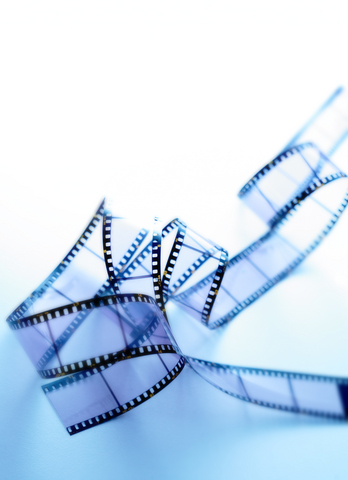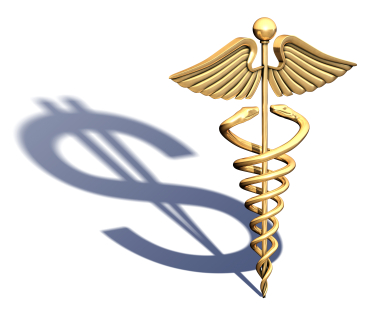Wednesday Bubble: the menopause ‘expert’
Does anyone else find it ironic that in a society where aging is taboo, menopause is the next big ‘thing?’ Yes, retailers, charlatans and ‘experts in everything menopause’ abound and they want you to believe that what they are selling will cure all that ails.
As I have written time and again on this blog, ‘one size fits all’ is a bad approach to health and wellbeing. Universally, many of us experience hot flashes or night sweats or mood swings or dizziness. But individually? Your challenges are unlikely to be exactly the same as mine, which is why I consistently recommend that you see a practitioner before trying any treatment or management strategy. All I can do is provide the information to allow you to make informed choices with someone who is trained in medicine or naturopathy, or herbal therapy or acupuncture or Traditional Chinese Medicine or yoga, or bioidentical hormone therapy or HRT. But take note: despite what we would like, no, love to believe, chewing a menopause gum will not eliminate your hot flashes. Drinking a menopause drink is unlikely to balance out those mood swings. A bed fan may not make you and your partner more comfortable as you sweat the night away. And, a shaman is probably not going to collectively alter a bunch of chakras via a video series.
Am I angry? As a matter of act, I am mad as hell and I am not going to take it anymore. And neither should you.
Am I for sale? No, I am not for sale nor is the blog a platform for others to take advantage of you. My promise since starting this blog echoes how I live my life: straight, no shooter, no bullshit, no games, honesty, sincerity and integrity. I am not trying to convince you that my way is the highway. Rather, my goal is and has always been to provide you with the most current, scientifically-driven information so that decisions and choices are well-informed and methodical. And when I review a product, it is an honest review framed by full disclosure. Moreover, while I try to be as objective as possible, this blog is not journalistically driven but rather, informed by my personal experiences and may, at times, reflect my subjective views. As always, I leave to you to decide what information you can use and what information you want to dispose of.
If you are wondering about the impetus for this post, let’s just say that for months now, I have participated in a LinkedIn group where I observed the voices of the well informed being drowned out by the collective who don’t have your best interest at heart. And, after one of these members crossed a line and used the platform to send me a form letter blatantly inquiring if I would pimp her product and become a shill for her program, I decided to sever both ties.
The Menopause Industrial Complex is becoming very noisy. It is going to be harder and harder to discern reality from fantasy and real strategies from snake oil. When someone calls themselves an ‘expert’ step back and do your homework. Look deeply into their background, credentials and experience. Ask about their training, skill set and think about their motivation. Then step back and do it again. And then talk to other women who have used what they are selling. Always question testimonials, studies that only survey a bunch of people via the web or have only been conducted in animals. A money back guarantee is not a guarantee of success. And one size fits all rarely works. Mostly? Trust your gut. If it smells like a rat and looks like a rat, it’s probably a rat.
Read More
Menopause: a disease. Or not?
For some time now, I have been writing about the medicalization of menopause and about the Menopause Industrial Complex and its implication for how the life transition is currently managed, understood and communicated. And if you are a regular reader of this blog, you know that I find it appalling how society has managed to change how we perceive a biologically natural transition from a positive to a negative. Consequently, I was intrigued when I stumbled across a research article in BioMedCentral Medical Education journal discussing the role of medical education in driving how future clinicians view a constellation of symptoms as the norm (or not) and how they subsequently label them as a result.
Not surprisingly, how something is labeled drives practitioner atttiudes towards management and treatment.
Writing in the journal, the study’s co-authors say that “The labelling of a condition as a “disease” has important implications…failing to label a condition as a disease may mean effective treatment is not prescribed, labeling a non-condition as a disease may result in unnecessary treatment.” Moreover, they point out that data have shown that such labelling leads to greater numbers of prescriptions. And, that labeling a spectrum of symptoms incorrectly may promote anxiety about prognosis and overtreatment.
Fortunately, in this study of 190 medical students, approximately 80% concurred that menopause was a “non-disease.” And yet, one has to wonder that if a cohort of licensed practitioners were surveyed, the results would be the same?
Despite the fact that the rates of prescriptions for hormone replacement therapy have significantly declined, the historical construct of the menopause has long been associated with loss, decline and decay, something is abhorred and shunned in society. In response, marketers and the media have perpetuated and pathologized what author Louise Foxcroft (in her book, ‘Hot Flushes, Cold Science’) refers to as “one more feature in a woman’s linear life history, an inevitable and natural phenomenon, one more thing to negotiate and nowhere near as astonishing or potentially problematic as pregnancy.”
It is all in how you/we view it. And how our practitioners view and label it.
If you are encouraged by the future of medicine, let’s take a look at the ‘now.’
Cynical as I may be about society’s vision of the aging woman, I was further dismayed when my friend and esteemed colleague, Ivan Oransky forwarded an article outlining a small study of residents that participated in a menopause clinic rotation. Within this rotation, the residents had an opportunity review each case after menopausal women were seen and additionally, were offered after-hour lectures to enhance their knowledge and education.
Overall, the findings demonstrated that it was the clinical contact with the women and not sporadic instruction, that significantly impacted residents’ ability to thoroughly understand issues relating to menopause and women’s health (this was evidenced by mean improvements in menopause test scores by 13%). And yet, as the study authors point out, most resident education is currently based on didactics and not face-to-face contact. This implies that these results, however favourable, may not be applicable to the real world.
Another overlooked challenge in this particular case is the adjunctive educational opportunities offered to the resident physicians. In addition to colleague-directed knowledge or realtime clinical experience, they were provided with an opportunity to purchase educational materials about menopause produced by Red Hot Mama’s. Herein lies the rub: Red Hot Mama’s, one of the oldest organizations for menopause, receives funding from Norogyne Pharmaceuticals and advertises Vivelle-Dot hormone replacement on its home page. You may recall that the organization even teamed up with Norogyne Pharma to pimp Vivelle up on a roof; you can find the post here.
The take-home message of these two studies is very clear: currently, medical students appear to be ‘in the know’ about menopause, at least in so far as how it should be classified. This divergent path has the potential to ultimately influence how menopause is viewed and managed in Western society. Moreover, there appears to be a realization that in certain situations real time clinical contact may supercede or significantly enhance didactic education. However, this education may be less valuable if it is driven by commercial interests. What concerns me most is that by the time these practitioners of the future get out into the real clinical world, they may possibly drink the the Kool-Aid or at least, taste it.
How do we approach this ironic paradigm that is being perpetuated and rewound, even by organizations organized to help the very women that they may ultimately be hurting?
Labels? It’s up to you. Menopause, is it a disease or not? And what are you going to do about it?
Read More
Talk health to me, baby…on ePatient Conference, Seduce Health and menopause
When was the last time talking health was considered sexy? Or creative? Or passionate? Well, if you are a long time reader of Flashfree, you know that I don’t mince words and I don’t attempt to turn menopause or aging into a steamy soap opera (unless we’re talking steamy as in night sweats and hot flashes). However, I do try to approach the ‘what you need to know’ with humor, integrity and candor and stay away from fear mongering. That’s why I was excited to meet a lot of people last week who not only shared my passion for healthcare but more importantly, for conversing about it.
If you have not heard of ePatient Conference, you may want to check it out next year. It’s two solid days of engagement, exchange and networking. But if you take away the buzzwords, you are left with an opportunity to put creativity back into the way that healthcare is approached, managed and talked about.
Among the many incredible experiences — from hearing Seth Godin’s keynote to witnessing the VGo Robot take photos of the audience — none were quite as inspiring as meeting Google’s Chief Health Strategist, Roni Zeiger. And while Roni is undoubtedly doing some very cool things with Search and Trends over at the Google Headquarters, I was most impressed when he started telling me about Seduce Health. Along with co-founder Alexandra Drane, Roni started the site “to get a public conversation started about how we can reframe how we ask people to change their behavior, to live healthier and therefore happier lives. To move from fear and lecturing to passion and dreams, hope and beauty.”
It’s not a bad goal. But is it achievable?
It’s fairly clear that health messaging often falls on deaf ears and that sometimes, the individuals, experts and organizations leading the charge are the ones who are also misleading the very public they seek to educate. Take overweight and obesity for example, problems affecting an estimated two out of three American adults and at least 17% of all children. Obesity is the elephant in the room, acknowledged but rarely discussed without fear or lecturing, under- or misestimated and frequently inadequately addressed. Menopause is also a good example, a natural transition in a woman’s life that has been turned into the disease of the 21st century, medicalized by many health practitioners, manufacturers and the media, and mongered to the point where we have a burgeoning Menopause Industrial Complex based on greed, profit, fear and self-loathing rather than empathy and education.
When it comes to women’s health, I do believe that can be sensuous and passionate, not dry and stale. Along these lines, I recently wrote that:
taking control doesn’t have to mean that the aging process is denied, stopped or obliterated, medicalized or industrialized. Rather, it means taking charge to feel better, more vibrant, healthier so that you/we/I can live the best life I can live while we are alive. For me personally, that doesn’t mean hormone replacement or botox or lipo; it means trying to make more healthier decisions, control or address my symptoms with evidence-based alternatives and accept the transition as a natural part of my journey. I consider this time an opportunity for shifting priorities and interests that open all sorts of possibilities. And, I want to take the experience out of the closet and foster discussion and sharing. Ultimately, I’d like the see a more natural course driven by women themselves, as opposed to societal expectations and stigmatization of the aging process and as opposed to the Menopause Industrial Complex.
I’ve said it before and I’ll say it again. Let’s crowdsource menopause. Let’s make it a goal to seduce our peers and practitioners into talking about it, embracing it and not trying to change it into something its not: a four letter word. Aging can be a hopeful, positive experience.
What do you say? You in?
p.s. If you are curious about ePatient Conference, organizer Keven Kruse has graciously posted presenter slides here.
Read MoreMenopause: the symptom? Or, the disease?
A few years ago, I ran across the following story on the BBC:
“Woman’s Death Blamed on Menopause.”
“A woman who refused to take hormone replacement therapy died while suffering a menopausal episode, an inquest had heard. Margaret Drew…was killed when she walked out of her family home on to a nearby railway line and was hit by a train…There is no trigger to this at all, except hormones making her do things that she normally wouldn’t do, Dr. Carlyon [Cornwall Coroner) concluded…”
Menopause. The silent killer. Oh really? Drew’s husband claims that his wife was “delightful, lovely and friendly” 99% of the time; the other 1% she’d become “totally irrational.” Yet, she refused to try HRT, he says. On the day of her suicide, he said that his wife was “clearly angry about something.”
Something.
Obviously, the conclusion is that that the “something” is hormones. This reminds me of vintage advertising copy that conveys the simple message that a pill a day can cure all that ails, wipe away the tears, mood swings and instability so that women can “transition without tears” (or better yet, without killing themselves).
Notably, a search in the National Library of Medicine’s PubMed database turned up only one recent study specifically dealing with suicide ideation across reproductive stages. In it, researchers compared data in 8,794 women, and found an increased risk of thinking about suicide among women during perimenopause, not before or after entering menopause. These findings remained after controlling for risk factors such as anxiety and mood disorders. HOWEVER, the researchers noted that the study design did not allow them to form any definitive conclusions about the specific reasons for thinking about suicide.
Another search yielded information that the risk for a major depression increases during perimenopause, primarily as the direct result of vasomotor symptoms. The same does not hold true for women before menopause begins or once they enter menopause. Note that while major depression is a risk factor for suicide, not everyone who is depressed will actually kill themselves.
So, are hormonal fluctuations the sole cause of such deep unhappiness that women want to kill themselves?
Interestingly, just a week after the menopause/train suicide story hit the interwebz, a rather controversial set of data also emerged: since 1972, women’s overall level of happiness has dropped. These findings held true regardless of child status, marital status and age. Researcher Marcus Buckingham, writing in the Huffington Post, said that women are not more unhappy than men because of gender stereotyping and related attitudes, due to working longer hours or because of the inequality of housework/responsibilities at home, but rather, the hormonal fluctuations of menopause may be to blame. What’s more, he leaves us hanging so we’ll tune in for part two of the piece to learn the true cause of our declining happiness or better yet, read his book (which evidently guides women through the process of finding the true role that they were meant to play in life).
Importantly, reactions to this study (and various pundits’ assessment of it) have been mixed. One of the most poignant comments I’ve read asks the question “how is happiness measured? What does it mean?”
I have no idea what caused Mrs. Drew to walk into a train and kill herself. Perhaps she was depressed. Clearly she was suicidal.
I have no idea why research shows that women are less happier than they were three decades ago.
However, is menopause the cause? Aren’t these conclusions an example of how the Menopause Industrial Complex perpetuates societal myths that menopause is a disease that requires treatment? That as women, our attitudes, belief systems and actions are hormonally-based and driven? That we are hysterical beings who need guidance on how to find our way and fulfill our dreams, realize our paths, but only if we calm down?
Feeling angry? Blame it on menopause. Unhappy? Blame it on menopause. Not realizing your dreams? Blame it on menopause. Overworked, overstressed, undervalued? Blame it on menopause.
Blame it on menopause.
I don’t know about you but I’m tired, tired of hearing that menopause is not the symptom but the disease. Isn’t it time we start fighting back?
Read MoreManaging menopause naturally
 Anyone who is a regular reader of this blog knows that my goal is to explore and identify effective strategies to manage menopause and midlife challenges, strategies that don’t necessarily involve pharmaceutical agents. However, although I am strongly in favor of an integrative approach to health, I am the first to recognize that drugs and certain alternatives, e.g. herbs, are not incongruous but rather require informed decision making. What I don’t support, however, is disease mongering; as greater numbers of women enter menopause, they are increasingly becoming a target for the ‘Menopause Industrial Complex,’ a term that I believe applies to any organized effort to provide women with agents to combat the aging process and highlight the need to use them. In this case, informed decision making becomes a rather misinformed mess.
Anyone who is a regular reader of this blog knows that my goal is to explore and identify effective strategies to manage menopause and midlife challenges, strategies that don’t necessarily involve pharmaceutical agents. However, although I am strongly in favor of an integrative approach to health, I am the first to recognize that drugs and certain alternatives, e.g. herbs, are not incongruous but rather require informed decision making. What I don’t support, however, is disease mongering; as greater numbers of women enter menopause, they are increasingly becoming a target for the ‘Menopause Industrial Complex,’ a term that I believe applies to any organized effort to provide women with agents to combat the aging process and highlight the need to use them. In this case, informed decision making becomes a rather misinformed mess.
Speaking of misinformed messes, do you recall Hot Flash Havoc, which I characterized as ‘an infomercial of menopausal proportions, a messy mash-up of HRT hype and fear and loathing, a big estrogen dildo just waiting for an opening?’ Truly, this film made me lose faith in ways I never thought possible. Fortunately, however, everything that is so very wrong with Hot Flash Havoc is so very right with Managing Menopause Naturally, a new documentary that is slated for release on September 27.
Admittedly, I was skeptical going into the screening of this film. And fully convinced coming out of it that Managing Menopause Naturally achieves everything that Hot Flash Havoc did not. If there is a menopause goddess, she is lurking in a variety of MDs, nutritionists, midwives and academics, including those featured in this film, who believe that informed decision making lies with fair balance and choice and not with fear and self-loathing.
Managing Menopause Naturally takes the stance that postmenopausal women are no more estrogen-deficient than young girls approaching puberty and that contrary to public opinion, women going through menopause have plenty of hormones but at a lower level than their reproductive years. In fact, as Aleida LLanes-Oberstein (an RN and Board member of the New York State Midwifery Association) says, menopause is nature’s way of helping a woman move into a less stressful part of her life, to be free of childbearing and rather, nurture herself and her extended family. What an opportunity instead of a death sentence! Moreover, Western culture that has become desensitized toward this transition into another period of a woman’s life, a vision that is a far cry from Eastern cultures that believe that menopause is a period in a woman’s life where blood, fluid and hormones are directed inward for a woman to use for herself for revitalization and healing.
The film offers up current knowledge and education, not just about a woman’s anatomy but also about societal constructs, pharmaceutical and non-pharmaceutical strategies and generational distinctions. It provides a context for menopause, following a historical trail peppered with respectful humour and anecdotes. It is thorough, well-researched and challenges the viewer to challenge the status quo, place menopause within the context of an entire lifetime, acknowledge that there is no single correct path to follow and to make choices based on personal preference and need, as well as community knowledge. This is especially important notes one of the film’s experts, Tierona Low Dog, an MD and midwive and Director of Botanical Medicine at the University of Arizona Program of Integrative Medicine, particularly in the context of where we are today with hormone replacement. “If we start to use community knowledge, menopause and the issues surrounding hormone replacement therapy will be based on educated information and less on dogma,” she says.
In addition to community involvement, the film also points to the need for younger women to start thinking about menopause earlier, an opinion I have long held. Granted, it’s tough to think about menopause and aging in your mid-thirties when kids and family and work and life get in the way. And who wants to think about growing older? Nevertheless, as another expert, Isis M. Medina DC, CCN. Associate Professor at New York State College of Chiropractic notes, “taking measures to take charge early” can alter how the menopause transition plays out. The overriding message of the film is that ultimately, menopause is a personal puzzle that is only partially addressed by hormones, vitamins or other strategies and that that puzzle is a personal one with many data points ranging from lifestyle and geography to diet and culture.
If I have one major criticism of the film, it’s that it is too long, and I suspect that a few viewers will drop off far too early to obtain some of the more important messages that are sprinkled through towards the end. I wish that the editing had been tighter but even after watching it a second time, I’m not sure where I’d cut first; that’s how much I liked the point of view, the honesty and the tone.
Every now and then, something comes along to challenge our inner skeptic, inform our doubts, answer our concerns and help us forge a new path. This film is a gift and I encourage you to watch it.
[Disclosure: I did not receive any compensation to review or endorse this film. However, the marketers did provide me with a free copy of the DVD for my personal review and use.]
Read More









